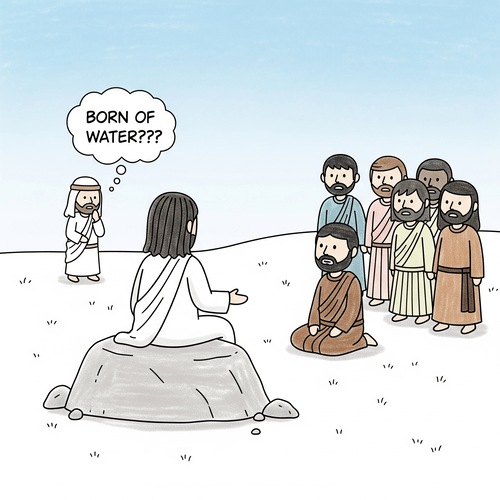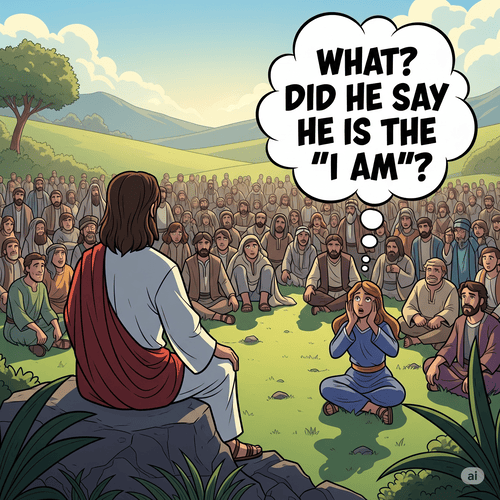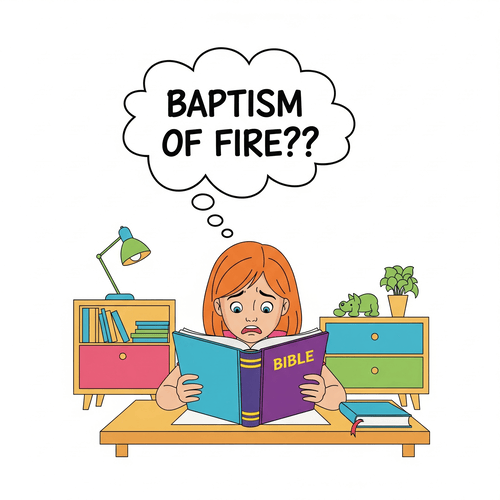Environmental Ethics: What Does the Bible Teach?
The Bible does speak to the issue of environmental ethics and our responsibility as human beings to be good stewards of God's creation. Here is a perspective on what Scripture teaches:
Environmental Ethics: What Does The Bible Teach?
From the very beginning, God gave humans a mandate to "rule over" and "subdue" the earth (Genesis 1:28). However, this was not a license for exploitation, but rather a call to wise stewardship and care for the natural order God had made.
When God created the world, He repeatedly declared it "good" (Genesis 1:4,10,12,18,21,25). The Psalms convey God's delight in the works of His hands—the earth is "full of Your creatures" (Psalm 104:24). Passages like Job 38-41 highlight how even the wildest aspects of nature are under God's sovereign providence.
God made a covenant not just with Noah's family, but with "every living creature" and the earth itself (Genesis 9:8-17). This underscores the abiding value God places on the natural world.
Throughout Scripture, the earth is portrayed as belonging to the Lord, with humans as short-term residents and stewards (Leviticus 25:23, Psalm 24:1, 1 Corinthians 10:26). We do not have absolute rights, but responsibilities to God as tenants caring for His property, the earth.
There are also practical instructions about sustainable agriculture, letting lands lie fallow, protecting biodiversity of plant and animal species (Leviticus 19:23-25, 25:1-7, Deuteronomy 22:6-7). These reflect an environmental wisdom and ethic of restraint.
Ultimately, the world belongs to God, is sustained by God, and reflects God's creative glory. Humans have been entrusted as stewards to rule over the earth in a way that reveres and preserves the natural order, biodiversity, beauty, and provisions of God's earthly creation.
Reckless pollution, despoilment, and wasteful consumption could thus be seen as violating our mandate to care for the earth as God's representatives. An attitude of humble stewardship that preserves environmental integrity and passes it on sustainably to future generations seems to be the biblical ideal.
Of course, these principles were given before radically changing modern economic and technological advances. But the Scriptural basis is there for an environmental ethic that balances sustainable cultivation and preservation of the natural world under God's sovereign dominion. This reflects worship of the Creator through our rightful stewardship over the creation.
Related Reads:
- How are Christians to deal with ethical issues in the workplace, such as being compelled to lie to a client?
- Gambling and Lotteries: Are They Compatible with Christian Values?
- Bribery and Corruption: What Do We Learn From the Bible?
- The Desire for Wealth: What Does the Bible Truly Teach?
- IP and Copyright: What Ethical Practices Should Christians Follow?
Editor's Pick

‘Bad’ Design: Flaw in Nature Or Flaw in Our Perspective?
When the Eiffel Tower was first proposed, critics called it a monstrous eyesore that would ruin Paris forever. Today, it’s [...]

The Problem of Divine Absence: How Do Believers Cope?
WHEN GOD SEEMS FAR: THE GREAT DISCONNECT Ever wondered why God seemed so close to Joseph in his Egyptian prison, [...]

Is ‘Gay Christian’ a Biblically Acceptable Identity to Have?
THE QUESTION OF IDENTITY IN BIBLICAL PERSPECTIVE The term “gay Christian” has become increasingly common in contemporary religious discourse, representing [...]

What Does ‘Born of Water’ in John 3:5 Mean?
THE REFORMED VIEW VS OTHER INTERPRETATIONS ”Jesus answered, ‘Truly, truly, I say to you, unless one is born of water [...]

The Lordship Salvation Controversy: What’s It All About?
Can someone be truly saved without making Jesus Christ their Lord? The question sits at the heart of one of [...]

1 John 5:6: How Do Water and Blood Reveal Jesus’ True Identity?
"This is he who came by water and blood—Jesus Christ; not by the water only but by the water and [...]

Is Jesus Yahweh? Answering Unitarian Objections
The question of whether Jesus Christ is truly God has divided Christians for centuries. While orthodox Christianity has consistently affirmed [...]

Matthew 3:11: What Is the Baptism of Fire?
When John the Baptist declared, “He will baptise you with the Holy Spirit and fire” (Matthew 3:11), his words carried [...]

From Rock to Stumbling Block: Why Jesus Called Peter Satan
In the span of just six verses (Matthew 16:13-28), Peter goes from receiving the highest praise from Jesus to getting [...]

Can Repentance be Real If We Struggle With Habitual Sin?
We’ve been there before. The weight of conviction sinks in as we realise we’ve fallen into the same sin. All [...]
SUPPORT US:
Feel the Holy Spirit's gentle nudge to partner with us?
Donate Online:
Account Name: TRUTHS TO DIE FOR FOUNDATION
Account Number: 10243565459
Bank IFSC: IDFB0043391
Bank Name: IDFC FIRST BANK






